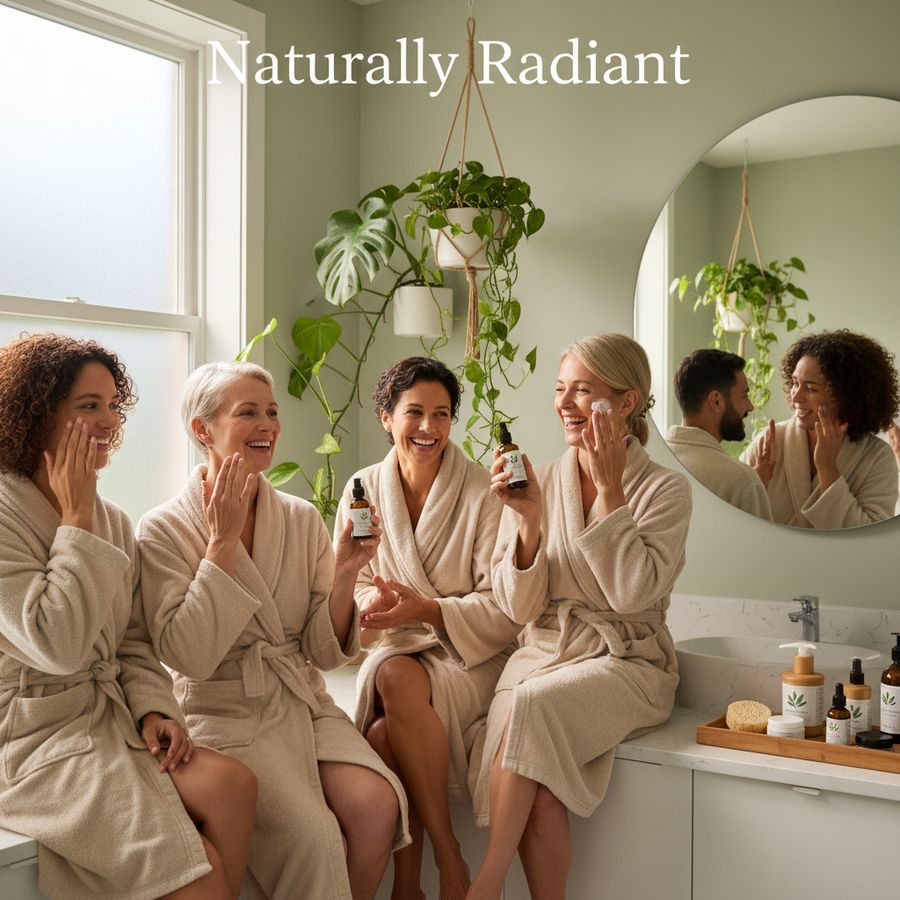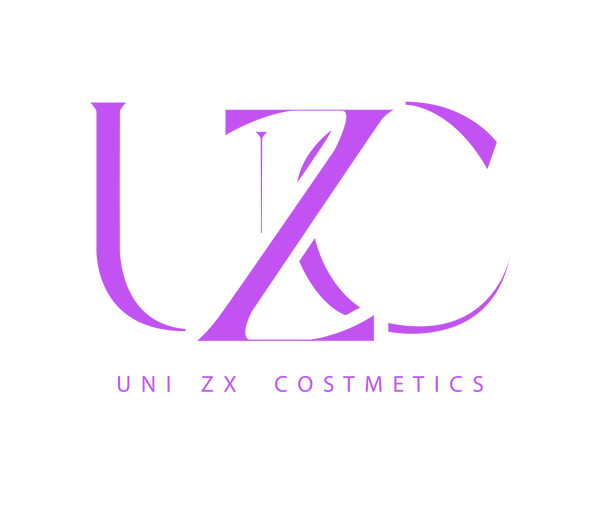
Natural alternatives to retinol in skincare
Overview
Retinol has long been celebrated as a powerhouse ingredient in the world of skincare, renowned for its impressive anti-aging properties and ability to renew skin. However, despite its effectiveness, many people with sensitive skin or those seeking more natural, plant-based skincare options look for gentler, natural retinol alternatives. These alternatives offer a compelling solution that balances efficacy with skin comfort, providing nourishment without the irritation sometimes caused by synthetic retinol.
In this article, we will explore what retinol is, why it is so popular in retinol skincare, and present various natural retinol alternatives that can help you achieve radiant, youthful skin. We will also discuss important safety and sensitivity considerations, how to incorporate these alternatives into your routine, and recommend some of the best products formulated with these natural ingredients. Whether you have delicate skin or simply prefer plant-derived solutions, this guide will help you discover effective anti-aging options that align with your skincare philosophy.
By embracing natural retinol alternatives, you not only support your skin’s health but also contribute to a more sustainable and cruelty-free beauty routine that respects both the environment and animal welfare. Let’s dive deeper into the world of natural skincare innovations that rival traditional retinol’s benefits.

What is retinol and its benefits
Retinol, a derivative of vitamin A, is a widely used ingredient in skincare known primarily for its remarkable anti-aging benefits. It works by accelerating skin cell turnover, which helps to fade fine lines, wrinkles, and age spots while promoting smoother, firmer skin texture. Additionally, retinol stimulates collagen production, improving skin elasticity and reducing the visible signs of aging.
Retinol is also effective in treating acne by unclogging pores and reducing inflammation. Its exfoliating nature helps to reveal brighter, more even-toned skin, making it a cornerstone ingredient in many anti-aging and acne treatment products.
“Retinol remains one of the most researched and trusted ingredients in anti-aging skincare, offering proven results in skin renewal and rejuvenation.”
However, retinol can sometimes cause irritation, dryness, and redness, especially for those with sensitive skin. This is why individuals who struggle with these side effects or prefer plant-based skincare often seek natural alternatives that offer similar benefits with a gentler approach. Understanding retinol's impact helps us appreciate the value of exploring these alternatives in depth.
Natural retinol alternatives explained
Natural retinol alternatives are plant-derived compounds that mimic the skin-renewing benefits of retinol without the harsh side effects. They provide a gentler approach to anti-aging and skin clarification, making them ideal for sensitive or reactive skin types. Here are some of the most popular natural alternatives:
-
Bakuchiol: Extracted from the Babchi plant, bakuchiol is renowned for its retinol-like effects, promoting collagen synthesis and reducing wrinkles without irritation. It’s a favorite in plant-based skincare for its antioxidant and anti-inflammatory properties.
-
Rosehip Seed Oil: Rich in natural vitamin A (retinoic acid precursor), rosehip oil helps improve skin texture, reduce pigmentation, and boost hydration. It also contains essential fatty acids that nourish and repair the skin barrier.
-
Carrot Seed Oil: High in beta-carotene and antioxidants, carrot seed oil supports skin regeneration and protects against environmental damage, delivering a natural glow and anti-aging benefits.
-
Sea Buckthorn Oil: Containing a natural source of beta-carotene and vitamins C and E, this oil moisturizes deeply while encouraging skin cell regeneration and elasticity.
-
Algae Extracts: Known for their rich nutrient profile, algae extracts help stimulate collagen production and improve skin firmness with minimal irritation.
These natural compounds offer a sustainable and cruelty-free approach to skincare, aligning with the growing demand for clean, effective, and gentle anti-aging solutions. Their compatibility with sensitive skin makes them an excellent choice for those seeking to avoid synthetic retinol’s side effects while still enjoying a radiant complexion.

Safety and sensitivity considerations
While retinol is effective, it can sometimes lead to irritation, redness, and peeling, particularly for those with sensitive skin. Natural retinol alternatives, though gentler, also require mindful use to avoid adverse reactions. Here are key considerations for safely incorporating these ingredients:
-
Patch Testing: Always perform a patch test before fully integrating a new natural retinol alternative to determine skin tolerance.
-
Sun Sensitivity: Some natural ingredients, like those rich in vitamin A derivatives, can increase photosensitivity. Use broad-spectrum sunscreen daily to protect your skin.
-
Gradual Introduction: Introduce alternatives slowly, starting with lower concentrations and frequency to minimize potential irritation.
-
Consultation: If you have existing skin conditions or are pregnant, consult a dermatologist before starting new treatments, even natural ones.
-
Quality and Purity: Choose products with high-quality, pure plant-based ingredients without harmful additives to reduce the risk of sensitivity.
“Gentle, plant-based skincare can be a game-changer for sensitive skin, but mindful usage is essential to reap benefits without irritation.”
By following these guidelines, users can enjoy the anti-aging and skin-renewing benefits of natural retinol alternatives safely and effectively, ensuring a balanced, radiant complexion without compromising skin health.
How to incorporate alternatives
Integrating natural retinol alternatives into your skincare routine requires a thoughtful approach to maximize benefits while maintaining skin comfort. Here are practical tips for incorporating these ingredients:
-
Start with Cleanse and Hydrate: Begin your routine with a gentle cleanser suitable for sensitive skin, followed by a hydrating toner or serum to prepare the skin.
-
Use Alternatives at Night: Since many retinol alternatives increase skin sensitivity, applying them in the evening helps prevent sun-related damage and allows overnight skin regeneration.
-
Layer with Moisturizers: Follow with a nourishing moisturizer to lock in hydration and support the skin barrier, reducing potential dryness or irritation.
-
Sun Protection: In the morning, always apply a broad-spectrum sunscreen as natural alternatives can also enhance photosensitivity.
-
Frequency: Begin by using the product 2-3 times per week, gradually increasing frequency as your skin builds tolerance.
Consistency is key in any skincare regimen. Incorporating natural retinol alternatives steadily allows your skin to adapt and benefit from their anti-aging and skin-renewing properties without overwhelming it. Combining these alternatives with other soothing, plant-based ingredients can further enhance results and maintain skin harmony.
Best products with alternatives
Choosing the right products formulated with natural retinol alternatives ensures you get the best of both worlds: effective anti-aging benefits and gentle care. Here are some standout options that combine plant-based ingredients with a commitment to vegan, cruelty-free, and sustainable beauty:
-
Natural Retinol-Alternative Oil Serum: A lightweight facial oil infused with bakuchiol and rosehip seed oil to promote collagen production and skin renewal without irritation.
-
Collagen Anti-Age Night Cream: Enriched with plant-derived antioxidants and natural retinol alternatives, this cream supports overnight skin repair and hydration.
-
Brightening Eye Cream: Formulated with gentle retinol alternatives and botanical extracts to reduce fine lines and brighten delicate eye areas safely.
-
Antioxidant Ginkgo Gel Booster: Combines algae extracts with natural antioxidants to boost skin firmness and combat environmental stressors.
These products reflect a modern approach to skincare that honors nature’s power, delivering visible results while respecting sensitive skin and eco-conscious values. When selecting products, always verify ingredient lists to ensure they contain effective natural retinol alternatives and avoid harsh chemicals that could compromise your skin’s health.
Conclusion
Natural retinol alternatives present an exciting and effective option for anyone looking to enjoy the remarkable benefits of retinol without the irritation, particularly those with sensitive skin. With choices like bakuchiol, rosehip seed oil, and carrot seed oil, plant-based skincare offers a gentle yet powerful approach to anti-aging and skin renewal. Discover more about these options here.
“Embracing natural retinol alternatives means choosing skincare that nurtures your skin and aligns with a conscious, cruelty-free lifestyle.”
By understanding these alternatives, considering safety, and incorporating them thoughtfully into your routine, you can achieve a radiant, youthful complexion naturally. Explore our curated selection of vegan, cruelty-free products formulated with these potent plant-based ingredients and embark on a skincare journey that respects both your skin and the planet.
